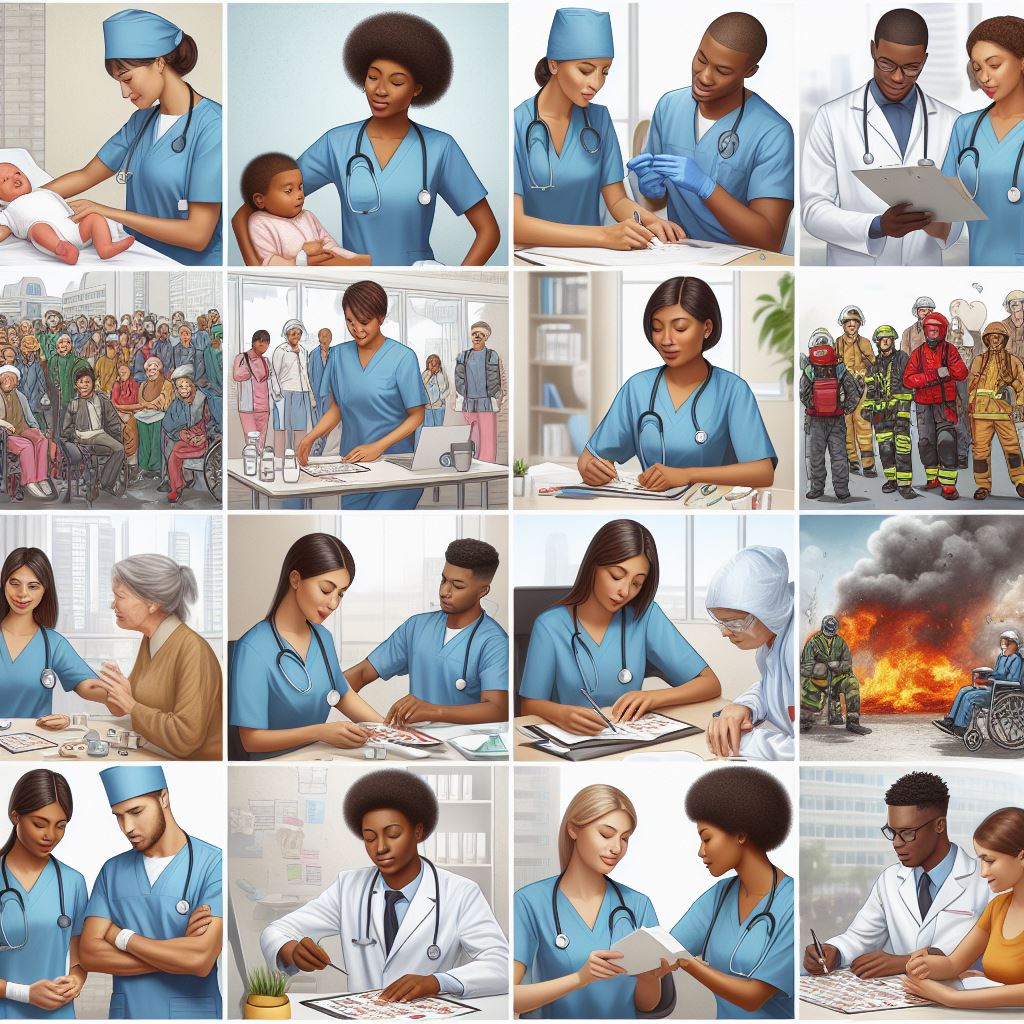Are nurses blue collar?
The image of a “blue-collar worker” conjures up visions of calloused hands wielding tools, laboring in factories or construction sites. But what about nurses? Do their stethoscopes and scrubs qualify them as part of the blue-collar brigade? The answer, like most things in life, is anything but black and white.

Nursing is a profession that is often associated with compassion, care, and expertise in healthcare. However, there has been ongoing debate and misconception about whether nurses should be classified as blue-collar workers. In this blog post, we’ll delve into the characteristics of blue-collar work, explore the role of nurses, and debunk the myth surrounding the classification of nurses as blue-collar workers.
Blue and White Collar Blur: Deconstructing the Nurse Stereotype
The image of a “blue-collar worker” conjures up visions of calloused hands wielding tools, laboring in factories or construction sites. But what about nurses? Do their stethoscopes and scrubs qualify them as part of the blue-collar brigade? The answer, like most things in life, is anything but black and white.
Breaking Down the Binary:
Traditionally, blue-collar jobs were manual labor focused, often requiring vocational training and associated with lower social status. White-collar jobs, on the other hand, involved intellectual work, requiring higher education and offering higher socioeconomic prestige.
Nurses, in this paradigm, seem to occupy a curious middle ground. Their work is undeniably hands-on, requiring physical and emotional stamina. They deal with bodily fluids, administer injections, and perform a range of physical tasks. Yet, their profession demands extensive academic knowledge, critical thinking skills, and emotional intelligence. They navigate complex medical technology, make vital decisions, and provide emotional support to patients in vulnerable states.
Beyond the Labels:
So, are nurses blue-collar? Arguably, the label simply doesn’t do justice to the multifaceted realities of the profession.
- Skillset and Education: Nursing demands both theoretical and practical expertise. Nurses spend years acquiring knowledge through advanced degrees and rigorous training, culminating in complex skills encompassing both science and compassion.
- Work Environment: While nurses often work in sterile hospital settings, their duties extend far beyond routine tasks. They manage emergencies, collaborate with diverse teams, and constantly adapt to a dynamic environment.
- Social Perception: Despite the demanding nature of nursing, societal perceptions haven’t fully caught up. The “caring” stereotype can downplay the intellectual rigor and professional skillset nurses possess.
The Role of Nurses
Nursing is a profession that requires a unique blend of skills, knowledge, and compassion. Nurses play a vital role in healthcare settings, providing direct patient care, administering medications, monitoring vital signs, and coordinating patient care plans. They work in a variety of settings, including hospitals, clinics, long-term care facilities, and community health centers.
Debunking the Myth
While some may argue that nursing involves elements of manual labor, it is essential to recognize the distinct characteristics of nursing as a profession. Unlike traditional blue-collar work, nursing requires specialized education, training, and licensure. Nurses undergo rigorous academic programs and clinical training to develop clinical expertise and critical thinking skills necessary for providing high-quality patient care.
The “blue-collar” versus “white-collar” dichotomy is outdated and fails to capture the nuanced realities of many professions, including nursing. Instead, we should focus on:
- Recognizing the diversity of skills and knowledge nurses possess. Their work demands both physical and intellectual prowess, making them vital contributors to the healthcare system.
- Appreciating the emotional and mental demands of nursing. Beyond technical skills, nurses provide emotional support and navigate ethical dilemmas, making their contribution far-reaching.
- Challenging outdated stereotypes and advocating for the rightful recognition of nurses as highly skilled professionals.
Ultimately, whether you call nurses blue-collar or white-collar is beside the point. They are dedicated professionals who play a crucial role in society, demanding both physical and mental agility, academic knowledge, and unwavering compassion.
Nurses are not blue-collar workers in the traditional sense of the term. While nursing involves elements of hands-on patient care, it is a highly skilled profession that requires specialized education, training, and licensure. Nurses possess a unique blend of clinical expertise, critical thinking skills, and compassion that distinguishes them as healthcare professionals. Debunking the myth surrounding the classification of nurses as blue-collar workers is essential in recognizing the valuable contributions of nurses to the healthcare system and society as a whole.